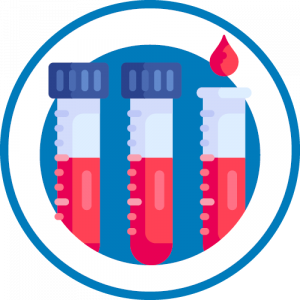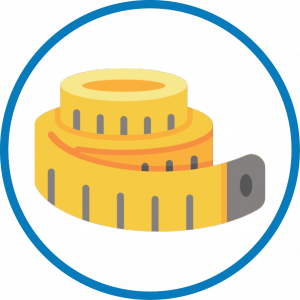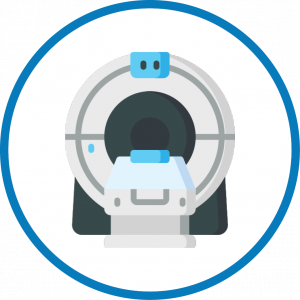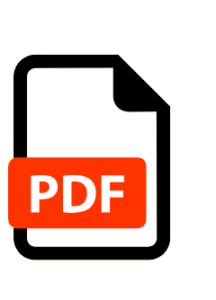For Researchers
What’s Available?
Explore the Study’s Data and Biosample Holdings
Questions? Contact our Research Operations and Access Officer at access@ontariohealthstudy.ca
Questionnaire Data
Questionnaire data from seven OHS data collection activities are available: the Baseline Questionnaire, including the Pilot Questionnaire; the Toronto Assessment Centre Questionnaire; a Follow-up Questionnaire; the Work History Questionnaire; the COVID-19 Questionnaire; and the COVID-19 Antibody Study.
Timeline of Questionnaires:
Information on data linkage opportunities can be found here.
Many questionnaire variables have been collected at up to four timepoints. Click here to view a summary of questionnaire data.
OHS Questionnaires:
- The Baseline Questionnaire was completed by ~225,000 participants. Two versions of the questionnaire were used: Baseline 1, completed by 196,215 participants, and Baseline 2, completed by 22,509 participants.
- The Baseline questionnaire included almost 1,400 variables covering: social and economic demographics personal and family health histories including medications; lifestyle behaviours such as sleep patterns, physical activity and alcohol and tobacco use; environmental exposures.
- The Assessment Centre Questionnaire was completed in 2013-2014 by more than 4800 Toronto area participants, who also provided a series of physical measures, blood and urine samples. The survey asks questions wholly different from the OHS Baseline and Follow-Up health questionnaires, focusing on self-reported symptoms and lifestyle factors, as well as individual experiences of cardiovascular and respiratory health, and head trauma.
- The Follow-up questionnaire was completed by ~47,100 participants. The questionnaire collected an update on participants’ health and behaviours, as well as new variables on e-cigarette and cannabis/marijuana use.
- The Work History Questionnaire was completed by ~33,600 participants. This questionnaire collected data on participants’ occupational histories, such as job information, commute characteristics, occupational exposures, and psychosocial environment.
- The COVID-19 Questionnaire was completed by ~42,000 participants. This questionnaire focused on participants’ exposures, symptoms and diagnosis of COVID-19 since March 2020, and social, economic, psychological, and emotional impacts. Updated personal medical history, lifestyle behaviours, and anthropometrics were also collected.
-
The COVID-19 Antibody Study collected questionnaire data and a blood spot sample from ~10,000 participants at up to three timepoints. The questionnaires covered participants’ exposures, symptoms and diagnosis of COVID-19, healthcare use related to COVID-19, COVID-19 vaccination and side effects, lifestyle risk factors such as smoking, and psychological and emotional impacts. Variables on Long COVID were collected in the third timepoint.
-
Regular follow-up questionnaires will be conducted to track changes in overall health.
-
Data linkage opportunities are available through ICES, Ontario Health, CANUE, and other repositories. Data for 83% of participants have been linked with administrative health records, such as the Ontario Cancer Registry or OHIP claims databases.
Questionnaire Data From Other Sources
- ~3,000 participants also participated in the Canadian Alliance for Healthy Hearts and Minds (CAHHM) Study from 2014-2017. To accompany imaging data, a questionnaire collected variables on diet, physical activity, health services use, perception of community factors on health, immigration and acculturation, and cognitive function.
Biosamples, Physical Measures and other data modalities
Biospecimens

- Non-fasting blood samples were collected from more than 40,000 participants.
- The repository holds serum, plasma, red blood cells and buffy coat.
- A subset of ~6,000 participants have lymphocytes in DMSO.
- Urine samples were collected from 12,600 participants.
Biosamples and analytic data available for access
The number of aliquots and volume/amount available vary by aliquot type. The minimum volume required to complete the proposed analysis will be shared with researchers. Stated volumes indicate the maximum value collected, therefore participant samples may have lower total/aliquot volumes.
Biosamples available for access
Analytic data available for access
Analytic data from biosample analysis are also available for access.
- A portion of the blood samples collected during Baseline underwent immediate analysis, consisting of a complete blood count and glycosylated hemoglobin analysis.
- ~20,000 samples have been genotyped using the UKBiobank Affymetrix arrays.
- Inflammatory markers have been assayed for a subset, including cytokine panels from 1,440 participants.
- Serology data from the COVID-19 Antibody Study are available for ~10,000 participants
Physical Measures

Physical measures collected from ~13,400 participants include:
- Anthropometrics
- Standing and sitting height
- Blood pressure
- Resting heart rate
- Body fat percentage
- Grip strength
- Spirometry
Physical measures and blood samples were collected through a variety of Study initiatives:
Regional Assessment Centres (OHS Pilot), 2009-2010
- Located in Mississauga, Owen Sound and Sudbury
- Men and women regardless of their health history were enrolled and invited to the nearest centre where they completed self- and interviewer-administered questionnaires, provided a number of physical measures and provided blood and urine samples.
Toronto Assessment Centre, 2013-2014
- A subset of participants visited an Assessment Centre in downtown Toronto and provided a series of physical measures, blood and urine samples.
Local Study Centres, 2014-2017
- The OHS hosted a series of temporary blood collection clinics in communities across the province, including Ottawa, London, Windsor and Thunder Bay. More than 50 clinics were held from summer 2014 until March 2017.
LifeLabs Blood Collection Program, 2012-2017
- Through a partnership with LifeLabs Medical Laboratories, participants were able to provide samples at LifeLabs locations across Ontario. This program ran until March 2017.
Other Data Modalities

Magnetic Resonance Imaging
MRI data from the Canadian Alliance for Healthy Heart and Minds (CAHHM) Study are available for ~3,000 participants. Imaging was completed in 2017 and includes:
- Brain
- Heart
- Carotid artery
- Abdomen
Visit the CAHHM website for more information about their imaging protocol.
The OHS Cohort at a Glance
To learn more about the OHS Baseline Cohort, read the OHS Cohort Profile Paper in the International Journal of Epidemiology.
Prevalence and incidence of cancer in the Ontario Health Study, overall and among those who provided a blood sample
a Includes participants who consented to administrative linkages; mean (SD) age in years is 47 (15) overall and 57 (10) among those who provided a blood sample.
b Ascertained through linkage with the Ontario Cancer Registry from 1 January 1964 through to date of enrolment; self-reported cancer history is also available.
c Ascertained through linkage with the Ontario Cancer Registry covering the period from baseline to 31 March 2021.
d Average follow-up time is 8.7 years; 1,634,839 total person-years of observation.
Prevalence and incidence of select chronic diseases
a Includes participants who consented to administrative linkages and were successfully linked; outcomes were ascertained through linkage to the validated disease registries developed by ICES; mean (SD) age in years is 47 (15) overall and 57 (10) among those who provided a blood sample.
b Ascertained through linkage with the various disease cohorts/data sets covering the period from baseline to 31 March 2020 with the exception of congestive heart failure, which was ascertained through to 31 March 2019.
Participant characteristics at recruitment (2009-2017), Overall and by sex, Mean (SD) or %
Smoking (%)
Physical Activity – International Physical Activity Questionnaire (IPAQ) Short
Body Mass Index (kg/m2)
Hours of sleep per night
Age Distribution (%)
Sex Distribution (%)
* 2016 Ontario census profile; restricted to include data for people age 18 years and over
Ethnicity (%)a
a Visible minorities: persons, other than Indigenous peoples, who are non-Caucasian in race or non-white in colour; Multiple visible minorities: respondents who reported more than one visible minority group
* 2016 Ontario census profile; restricted to include data for people age 18 years and over
Geographic Distribution by Public Health Unit
Receive research updates
Be the first to know about new data sets, event invites, funding opportunities and more by signing up for the OHS Research Bulletin.



